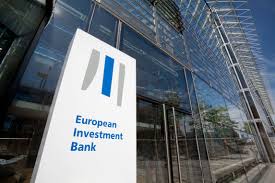
The Ministry of International Cooperation said that Egypt is expecting to sign agreements with the European Investment Bank worth EUR575 million in the second half of October.
According to a statement by the ministry citing the EIB’s Director of Operations in Southern and Eastern Neighboring Countries Heinz Olbers said that the bank’s deputy head is set to visit Egypt in the second half of October, reported Aswat Masriya.
The statement said that the agreements are aimed to finance the purchase of 13 trains for a second metro line as well as small and medium enterprises.
Moreover,Egypt received the first $1 billion tranche of a $3 billion three-year loan from the World Bank aimed at supporting the government’s reform programme.
Egypt is also working to secure a $12 billion loan from the International Monetary Fund, part of an overall $21 billion over three years to fund measures to restore investor confidence and revive Egypt’s wrecked economy that has struggled to revive.
Last month,Egypt’s finance minister said in a television interview that Egypt’s external debt would reach $53.4 billion if it received an international Monetary Fund (IMF) loan.
The Egyptian economy has been struggling as it faced one of its harshest downfall in its history. It suffered from shortage of foreign currency due to the withdrawal of tourism and foreign investments which were among the main sources of foreign currency.
Moreover, the shortage of foreign currency has led to unprecedented rise of the dollar exchange rate relative to the Egypt’s currency. Net international reserves dropped to $15.5 billion in July, the lowest level in 16 months.
The Central bank of Egypt(CBE) has devalued the Egyptian pound last March with amid speculation of another devaluation in the coming period.
Many economic experts believe that there are negative impacts for the loans that will accumulate debts on the Egypt.
Amr Adly an expert in Carnegie said that for the IMF loan will cover current payments as the public deficit and the dollars’ shortage crisis which are all items without revenues and this strategy will enter the country in a borrowing loop in order not to get bankrupted. He said that it is similar model to what is happening in Greece.
Wael Gamal-an economic expert-said that Egypt will pay an expensive price in the future with the increase in the public and foreign debt and the absence in the foreign currency sources.
In the same context, Ehab Saeed -a financial analyst – said that there are negative impacts to the IMF loan as the increase in the debt. He also added that there will be other effects on the social level as the government will most probably adopt austerity policies some will be related to the wages after the adoption of the civil service law that will lead to a strong wave of inflation.
Moreover, the economic expert and counselor Ashraf Dawaba said that the new loan will enslave Egypt as it will lead to floating the Egyptian currency, increasing the interest rate, and the inflation rate. He also added that it will decrease the wages, the subsidies on the fuel, but the taxes will increase. As a result, the IMF policies will ruin the Egypt’s fortunes, he said.
37.3 %of Egypt’s external debt comes from the Arab countries, mainly Saudi Arabia, Kuwait, and the UAE, according to a recent report by the Egyptian central bank .
Egypt’s external debt reached $47.8 billion by the end of December 2015, compared to $48.1 billion at end of June 2015.
As for the rest of the world, the report added that 6 %of Egypt’s external debt was owed to Germany, 4.6 %to Japan, 4.2 % to the United States, and 3.1 %to France.
The central bank further said that 27.0 %was owed to international organizations, mainly 9.8 %to the World Bank, 3.4 % to the European Investment Bank (EIB), and 3.6 % to the African Development Fund and the African Development Bank (AFDB).



